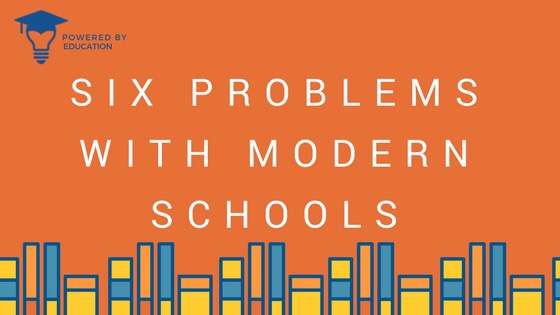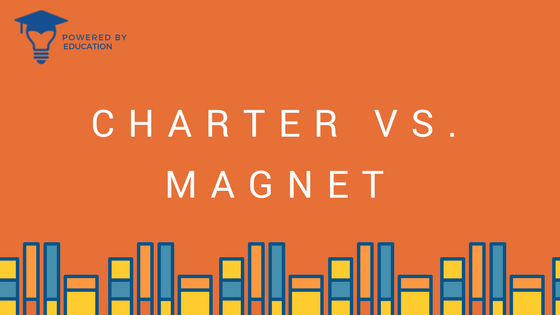In Hawaii, you have more options than you may think…
Brick & Mortar Public Schools
Compulsory Attendance
Your child’s age is your first indicator of his or her eligibility for beginning school. Students is required to be enrolled in school if they turn five on or before July 31. see more >
Required Documentation
Hawaii school districts set the requirements for what documentation is required prior to enrolling a student in their district. To get that information, contact the district directly.
Some legal documents are required for Hawaii students to attend school:
- Certified Birth Certificate/proof of identity
- Official copy of records/transcripts from the previous school the child most recently attended
- A shot immunization record (or proof that immunization is not required for the child)
- Click here to view the immunization requirements
- Proof of home address (for example, a rental agreement or tax statement)
School Fees
Paying some fees is a part of public education, though it is primarily a free education. Students are expected to supply their own basic school supplies such as paper, pencils, and notebooks. Each district has a list of approved expenditures for students. Fee waiver forms can be requested from the school if there is a situation that prevents a family from being able to pay for required materials or events.
Some typical items on that list include:
- Lunch
- Summer school
- Student parking passes (high school)
- Lost textbooks
- Late or lost library books
- Field trips
- Special class-required fees (e.g., science lab fees)
Public Charter Schools
What are Charter Schools?
Charter Schools are tuition-free public schools operated by independent, non-profit governing bodies.
Parents, teachers, and community leaders sign a “charter” or contract with a school district or state agency to create a charter school and give students more educational options than their assigned school. Charter schools have flexibility over classroom hours, curriculum, and employment policies, but are subject to periodic reviews based on student performance. In Hawaii, public charter school students are measured against the same academic standards as students in other public schools. Local boards of education monitor the academic and financial performance of charter schools, and, can revoke or refuse to renew a school’s charter.
Hawaii Charter Schools
A list of the active charter schools can be found at Hawaii Department of Education’s List of Charter Schools.
Frequently Asked Questions
Frequently asked questions about charters can be found at the Hawaii Department of Education.
Enrollment
Most charter schools do not have attendance zones. If you are interested in applying for your child, you must apply directly to the school. The application and selection process can be quite complicated. Make sure to contact the school early to determine the correct next steps to applying.
Virtual Public Schools
In Hawaii, children attend school online in virtual classrooms with state certified teachers. Some virtual programs are open to in-district students only, while others have enrollment open to students across the state.
The Hawaii Department of Education (HIDOE) E-School provides standards-based, online classes for Hawaii’s students. Students enrolled in any HIDOE public school (which includes charter schools) can take these supplemental online courses in addition to their regular classes. Check their course list here.
Phone: (808) 676-5444
Grades: K-12
Phone: (808) 441-8000
Grades: K-12
Private Schools
What makes a school “private”?
Private schools charge tuition, and many have a religious mission. Some private schools offer families assistance to make tuition payments. Click below for the complete list of just over 100 private schools across the state:
Private School Review offers free, detailed information on U.S. private schools combined with useful community data (e.g., housing costs) and maps of the surrounding areas.
*Information on non-public school admission requirements should be obtained from the school directly.
Scholarships
The only one of the legislature’s lawmakers has introduced a school voucher program for low-income families in recent years. That bill has failed to gain any traction.
Educational Choice Programs
Currently no one is proposing an educational savings account.
For more information on policy change or to get involved in the school choice movement in Hawaii visit EdChoice.
Private Virtual Schools
George Washington University Online High School is an online college preparatory academy for motivated students who are willing to be challenged to become the best students and persons they can be. Combining award-winning curriculum with small class sizes and intensive college counseling, students receive a flexible, individualized education attuned to their own needs and goals.
International Academy is a K12, Inc accredited, online private school for grades K–12. Students earn a U.S. high school diploma while using award-winning K¹² curriculum. They offer extensive, individualized academic and counseling support keep students on track. The flexibility allows students to explore their passions. Full-time and part-time options are available.
International Connections Academy is a fully-accredited, online, college preparatory private school serving K–12 students worldwide. The program combines a top-rated curriculum with talented teachers, cutting-edge technology, the flexibility to learn at home, and direct family involvement to ensure each student realizes his or her full potential.
The Keystone School offers flexible education programs for high school and middle school students. Whether your student wants to study full-time or just needs individual classes, they offer more than 170 courses from credit recovery to world languages and AP. Students can enroll at any time.
Home Education
Your options
In Hawaii, parents have the option to educate their children at home, an option known as homeschooling or home education. Parents in Hawaii may choose to homeschool their own children in grades K – 12. Parents desiring to homeschool their own children may do so by choosing one of the following two options – Under Hawaii’s homeschool statute and as an alternative education program. learn more >
Under Hawaii’s homeschool statute:
Hawaii law specifically refers to homeschooling in Hawaii Rev. Stat. § 302A-1132(a)(5). To homeschool under this statute, you’ll need to follow these guidelines:
- Submit a Notice of Intent. The notice of intent should be given to the principal of the public school your child would attend if he or she were enrolled in public school. This notice may be submitted on a department-developed form (Form 4140) or in a letter that includes the name, address, telephone number, birth date, and grade level of the child and the parent’s signature.
- Ensure your curriculum complies with the statute. There are no required subjects to be taught, but your curriculum must “be structured and based on educational objectives as well as the needs of the child, be cumulative and sequential, provide a range of up-to-date knowledge and needed skills, and take into account the interests, needs, and abilities of the child.”
- Keep Records. You must keep “a record of the planned curriculum,” which must include:
- the commencement date and ending date of the homeschool program
- the number of hours per week of instruction
- the subjects to be covered
- the method used to determine mastery of materials and subjects in the curriculum
- a list of textbooks or other instructional materials.
- Submit annual progress reports. You must submit an annual report of your child’s progress to your local principal. For grades 3, 5, 8, and 10, parents must submit the results of a criterion or norm-referenced standardized achievement test. For all other grades, the annual progress report may be one of the following:
- a score on a nationally normed standardized achievement test, which must demonstrate grade-level achievement appropriate to the child’s age
- progress on a nationally normed standardized test that is equivalent to one grade level per calendar year
- a written evaluation by a Hawaii certified teacher
- a written evaluation by the parent (grades, tests, assignments, or results of the statewide testing program may be submitted) that demonstrates progress
- the results of Hawaii’s Statewide Testing Program, if the parent chooses “to have the child participate in the school’s testing program.”
As an alternative education program:
Hawaii law also allows parents to operate their homeschool as an alternative education program under Hawaii Rev. Stat. § 302A-1132(a)(5). To do that, you’ll need to follow these guidelines:
- Possess a Bachelor’s Degree.
- Obtain approval from the local superintendent.
- Ensure your curriculum complies with the statute. There are no required subjects to be taught, but your curriculum must “be structured and based on educational objectives as well as the needs of the child, be cumulative and sequential, provide a range of up-to-date knowledge and needed skills, and take into account the interests, needs, and abilities of the child.”
- Submit annual progress reports. You must submit an annual report of your child’s progress to your local principal. For grades 3, 5, 8, and 10, parents must submit the results of a criterion or norm-referenced standardized achievement test. For all other grades, the annual progress report may be one of the following:
- a score on a nationally normed standardized achievement test, which must demonstrate grade-level achievement appropriate to the child’s age
- progress on a nationally normed standardized test that is equivalent to one grade level per calendar year
- a written evaluation by a Hawaii certified teacher
- a written evaluation by the parent (grades, tests, assignments, or results of the statewide testing program may be submitted) that demonstrates progress
- the results of Hawaii’s Statewide Testing Program, if the parent chooses “to have the child participate in the school’s testing program.”
Dual Enrollment
College Credit
Dual enrollment courses are college credit courses. High school students enroll in college courses and earn postsecondary credit upon successful completion of the course. High school credit can also be awarded based on local school policy. Dual enrollment courses can be taught on the college campus, at the student’s high school, or online. The location of the course does not affect its status as a dual enrollment course. Home school students are also eligible for dual enrollment.
Course Fees
The parent/student is responsible for fees unless the student is eligible for free-/reduced-price lunch, in which case the student may apply for a GEAR UP Hawaii Running Start Scholarship. The scholarship is for tuition/fees and required textbooks for a 3- to 4-credit class. Priority is given to students who have not previously received a scholarship, and to seniors.
More about Magnet
Today Magnet Schools of America released a study showing [...]
The Foundation for Blended and Online Learning
In January, K12, INC. announced the launch of The [...]
Six Problems with Modern Schools
The modern school system was created during the Industrial [...]
Charter vs. Magnet
Today, we answer the age old question... what is [...]
Charter School Lottery: Explained
Many question how charter schools choose which students attend [...]




